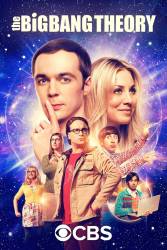The Wheaton Recurrence - S3-E19
Factual error: Sheldon and the team are league bowling and have a match with Will Wheaton's team. They are bowling on lanes 2 and 3. In league bowling, you have to bowl on lanes that start with an odd number because the ball return is shared between those lanes. In league bowling, you take turns with each lane so that any differences in the lanes evens out, and this lane layout wouldn't allow that.






Suggested correction: Genes can be dormant. Which allows them to skip generations. Therefor Missy's children could actually get the "mutated" gene. This is especially true since Sheldon and Missy are twins. Also, since the episode is about who out of Leonard, Howard or Raj, Sheldon would allow to "mate" with his sister, there is the added "insurance" of getting any smart genes from any of the 3 Lothario's mentioned above.
If you are going to try to argue with a geneticist about genetics, please use the correct terms. Sheldon is not referring to a recessive gene - there is no such thing as a dormant gene - he is speaking of a randomly mutated gene. Those are the words he used. If he had inherited a homozygous recessive karotype - one recessive gene from each of his parents - then somewhere in his family tree there would similarly gifted people, in which case he would use the correct term - a recessive gene. If Missy is a heterozygotic dominant karotype possessing the recessive gene for super-genius and the dominant for ordinary intelligence then mating her with Howard, Raj or Leonard would be a waste of time as their dominant genius gene would prevent the recessive super-genius gene from being expressed in the phenotype of the resulting child. The child would be highly intelligent but not on Sheldon's standards. It doesn't matter if Sheldon does not know any of this as he refers several times to a randomly mutated gene, not a recessive one. Missy does not carry the super-genius gene. The posting is correct.
Sheldon is prone to magical thinking when necessary to preserve his obsessive need to control his environment. He may have simply ignored the flaw in his reasoning, as even the most intelligent humans do when venturing outside their ares of expertise. He may be interested in the science of genetics, but his Ph.D. in physics doesn't qualify him as an expert in that field.